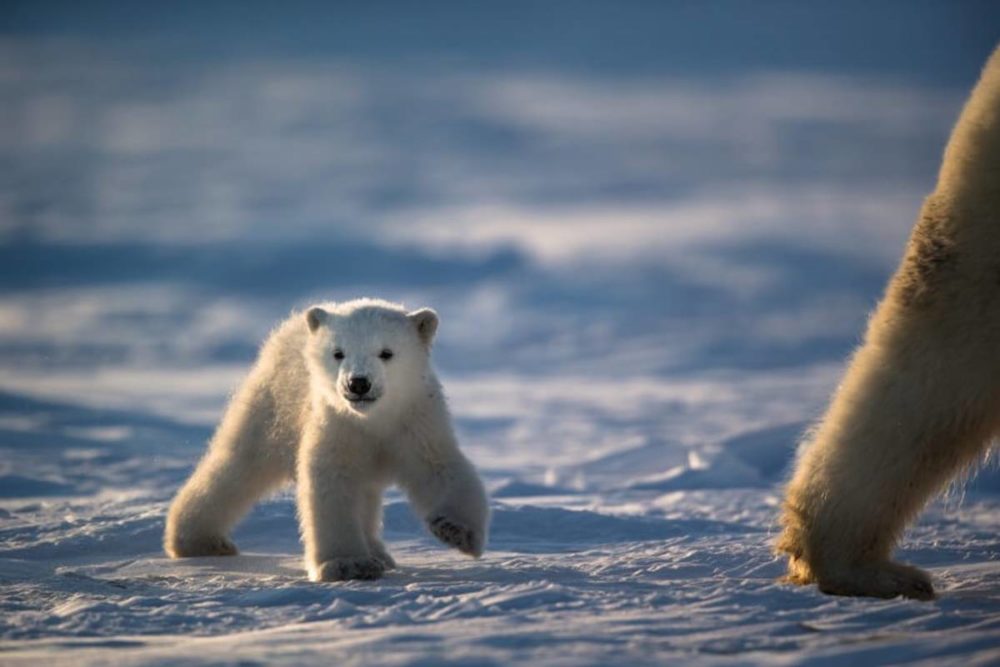Nature is in ‘free fall’ as world faces dangerous tipping points, experts warn

Nature is in “free fall” as a result of human activity, with global wildlife populations falling by nearly three quarters in 50 years, conservationists warn.
The world is fast approaching dangerous and irreversible “tipping points” in natural systems such as the Amazon rainforest and the polar ice caps, which pose grave threats to humanity and wildlife, a new report from conservation charity WWF says.
The latest edition of the Living Planet Index compiled by the Zoological Society of London (ZSL) warns monitored global populations of amphibians, birds, fish, mammals and reptiles have seen an average decline of 73% in 50 years.
Human activity
The declines have been driven by human activities such as habitat destruction for food production, and are now being compounded by climate change.
The index forms part of WWF’s latest Living Planet report, which calls for urgent action to transform food production, energy and finance systems that lie behind the declines in nature – on which humanity depends for its survival.
The report, released as countries prepare to meet for UN Cop16 and Cop29 meetings on nature and climate, warns tipping points are fast approaching, where impacts on a natural system reach a threshold, triggering major and potentially irreversible change.
These include mass die-off of corals which would destroy fisheries and storm protection for millions of people in coastal communities, while the melting of the Greenland and West Antarctic ice sheets would unleash many metres of sea level rise.
Tipping point
In the Amazon, deforestation and climate change could soon lead to a point where it is no longer suitable for tropical rainforest, causing a tipping point which would emit huge amounts of carbon and alter global weather patterns.
The Living Planet Index, which draws on data from 35,000 population trends and 5,495 species shows Latin America and the Caribbean have seen the fastest declines in wildlife, with average wildlife populations drop 95% in 50 years.
While declines have been less dramatic in Europe and North America, this reflects that large-scale impacts on nature had already taken place before 1970 in those parts of the world, the report says.
Mike Barrett, WWF chief scientific adviser, said the 73% decline was “really shocking”.
“It’s not just the Living Planet Index, all globally recognised indicators tell exactly the same stories, whether we’re talking about population abundance, about species diversity, extinction rates, or the extent and intactness of natural habitats, these all tell us that nature is in free fall,” he said.
The report highlights tumbling populations for creatures from nesting female hawksbill turtles in the Great Barrier Reef to Amazon pink river dolphins in Brazil.
It also highlights some conservation bright spots including increases in mountain gorillas in Virunga mountains in East Africa, and the comeback of European Bison populations in central Europe, but warns they are not enough amid a backdrop of widespread habitat destruction.
And while governments have agreed global targets to tackle climate change, halt and reverse declines in nature and support sustainable development, the report warns there is still a huge gap between the finance and action needed and what is currently being delivered.
What happens in the next five years will “determine the future of life on Earth”, it says.
Calls
The report calls for more, and more effective, protected areas, for moves to support the rights of indigenous and local communities caring for their land, and “nature based solutions” such as agroforestry – integrating trees into farming – and restoring mangroves to cut emissions, boost nature and help people.
It also calls for scaling up nature-friendly farming, more plant-based diets and less meat and dairy in developed countries, reducing food waste and redirecting harmful subsidies to support sustainable agriculture.
The energy system must be transformed to curb climate changes and finance must be redirected away from harmful activities towards those that support the global goals on nature, climate and development, it urges.
In the UK, WWF is calling for a Living Planet Act to require the Government to produce plans demonstrating how they manage Britain’s land and seas to meet climate, nature and food security commitments.
And WWF UK’s chief executive Tanya Steele warned that Britons were “inadvertently driving deforestation and nature loss through what we eat and through what we buy” in products imported from abroad.
“So beyond the butterflies and the wasps here at home, what’s happening in the Amazon, what is happening all around the world, we have to acknowledge that it may feel far away, but actually that nature loss is being driven by us and by other developed countries and it is on us to stop and look to protect and restore nature.”
And she said: “Nature underpins, of course, everything – our societies, our economies, it provides the food we eat and the air we breathe.
“This report is a wake-up call. The need to protect and restore nature has never been more urgent.”
Support our Nation today
For the price of a cup of coffee a month you can help us create an independent, not-for-profit, national news service for the people of Wales, by the people of Wales.






Move along, nothing to see……..
https://showyourstripes.info/c/globe
That drives home the message more effectively than any words.
We will turn our thermostats down and drive electric cars, install solar panels meanwhile depleted uranium shells and other high explosives and chemical weapons will still be being thrown at various people in parts of the world. I despair of the human race at times